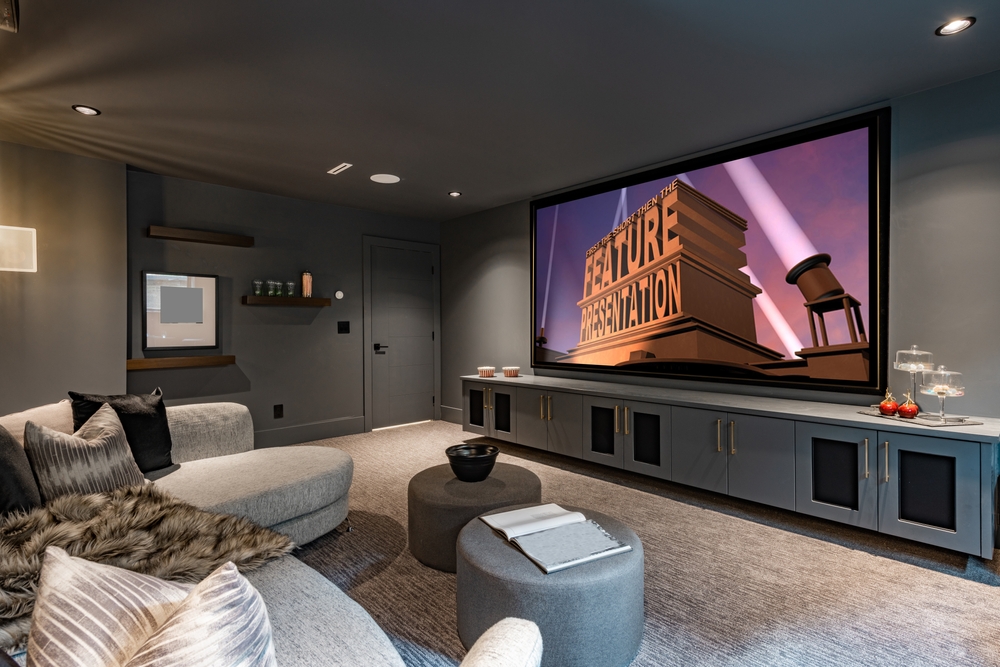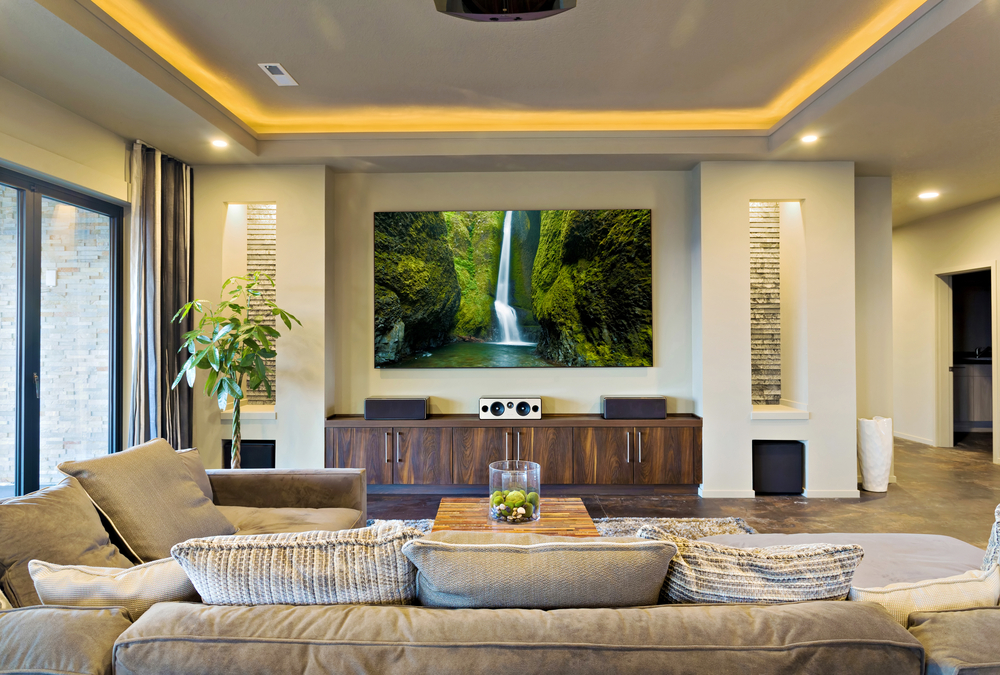Watts & Sound: What’s the Influence?

Audio is an invisible force that weaves through the air, shaping the very essence of our auditory experiences. This force is quantified in watts, a unit of power that is pivotal in the interplay of sound. But what is the best output for a home theater system?
As technology advances, pursuing the perfect auditory ambiance becomes both an art and a science. Imagine a home theater experience where a 1000-watt home theater system transforms the room into a pulsating cavern of sound, and each beat reverberates through the air. Often a metric casually tossed around in audio discussions, watts hold the key to unlocking the potential of our audio setups.
Do more watts mean better sound?
It’s a query that resonates through the minds of enthusiasts and casual listeners alike, echoing in the corridors of home automation. To unravel this mystery, we must dive deeper into the science behind decibels, speaker efficiency, and the nuanced interplay between watts and the quality of sound reproduction.
Understanding the wattage myth
The allure of high wattage often carries with it the assumption of superior sound quality. However, the truth is more complex. While wattage does play a role in determining a speaker’s potential volume output, it doesn’t inherently guarantee better sound. Understanding the relationship between wattage and perceived loudness is crucial to demystifying this audio problem.
Decibels: The measure of volume
Decibels (dB) serve as the metric for measuring sound volume. It’s essential to recognize that the decibel scale is logarithmic, meaning a slight change in decibel levels corresponds to a substantial change in perceived loudness. A speaker with higher wattage can theoretically produce more decibels, but this doesn’t automatically translate to improved audio quality.
The role of speaker efficiency
Speaker efficiency, often expressed as sensitivity in decibels, is a critical factor in the watts and sound equation. A speaker’s efficiency determines how effectively it converts electrical power into acoustic energy. In simpler terms, a more efficient speaker can deliver the same perceived volume with fewer watts, potentially offering cleaner and more accurate sound reproduction.
Matching power to purpose
Consider the intended use of your audio system. An excessively high-wattage speaker might need to be overkill for a modest living room setup and can lead to distorted sound at lower volume levels. On the other hand, a 1000-watt home theater system with immersive surround sound may benefit from higher wattage to fill a larger space with cinematic audio.
Quality over quantity
The quality of watts does not solely determine the quantity of sound. Speaker design, driver materials, and overall build quality contribute significantly to the audio experience. A well-designed speaker with lower wattage can outperform a poorly constructed, higher-wattage counterpart in clarity, precision, and overall sonic fidelity.
Listener preferences and room acoustics
Ultimately, the ideal wattage for better sound is subjective and depends on individual preferences and the characteristics of the listening environment. Factors such as room acoustics, speaker placement, and the listener’s taste in music all play pivotal roles in shaping the auditory experience.
How many watts is suitable for a home theater system?
In the quest for the perfect home theater experience, the question of how many watts is ideal often takes center stage. The allure of immersive soundscapes, crystal-clear dialogue, and thunderous bass draws us into the intricate world of audio power. As we navigate the vast sea of specifications and technicalities, let’s uncover the power sweet spot that ensures your home theater system this winter delivers a sonic performance that resonates with cinematic brilliance.
The power landscape
Wattage in the context of home theater systems encompasses the collective power output of various components, including speakers, amplifiers, and subwoofers. It’s a significant metric, but its interpretation requires a nuanced understanding to gauge its impact on the auditory experience.
The 100-watt subwoofer
Picture a media room with a 100-watt home theater subwoofer at its core. The subwoofer, responsible for delivering the low-frequency effects that add depth and intensity to audio, becomes a powerhouse in this scenario. If you’re wondering if 100 watts is enough for a subwoofer, remember that this configuration can produce robust bass, shaking the room during explosive action sequences and adding a palpable thump to every beat of the film’s score.
Balancing act
When contemplating how many watts are good for a home theater system, striking a balance is essential. The power must be sufficient to fill the room with immersive sound without being excessive to the point of causing distortion or overwhelming the space. The goal is to achieve a harmonious blend that complements the room size and the listener’s preferences.
A rich home theater system sound
Consider the scenario of a 1000-watt home theater system. This higher wattage encompasses the combined power of speakers, amplifiers, and potentially a more potent subwoofer. In a more extensive home theater setup, this increased wattage can contribute to a more expansive audio experience, ensuring that the sound reaches every corner of the room with clarity and precision.
The size of the room matters
The size of your space plays a pivotal role in determining the appropriate wattage. A smaller room may require less power to create an enveloping audio experience, while a more significant space benefits from higher wattage to maintain consistent sound throughout.
Quality over quantity – always
While wattage is a crucial consideration, it’s equally important to prioritize the quality of components. A well-designed 500-watt system with high-quality speakers and amplifiers often outperforms a poorly constructed 1000-watt home theater system. Look for a synergy between components to ensure a rich, detailed audio output.
Listener preferences and content type

Personal preferences and the type of content you enjoy also influence the ideal wattage. A movie enthusiast may lean towards a higher-wattage system for cinematic impact, relishing blockbuster films’ thunderous explosions and dynamic soundtracks. On the other hand, a music lover might prioritize nuanced audio reproduction at lower wattages, savoring the crisp clarity of acoustic performances.
Your home theater’s wattage should align with the genres and experiences that resonate most with your auditory palate, ensuring that every moment, whether a heart-pounding action sequence or a mesmerizing musical performance, is delivered with the precision and power that suits your unique tastes.
Who is the best provider of a 1000-watt home theater system in Chicago, IL?
Elevate your home audio experience with Liaison Technology Group. From cutting-edge wireless audio solutions to discreet hidden audio setups, our award-winning home automation company specializes in bringing innovation and sophistication to your living space near The Loop. Let us redefine how you experience your home and ensure it resonates with the perfect blend of innovation and sophistication.
